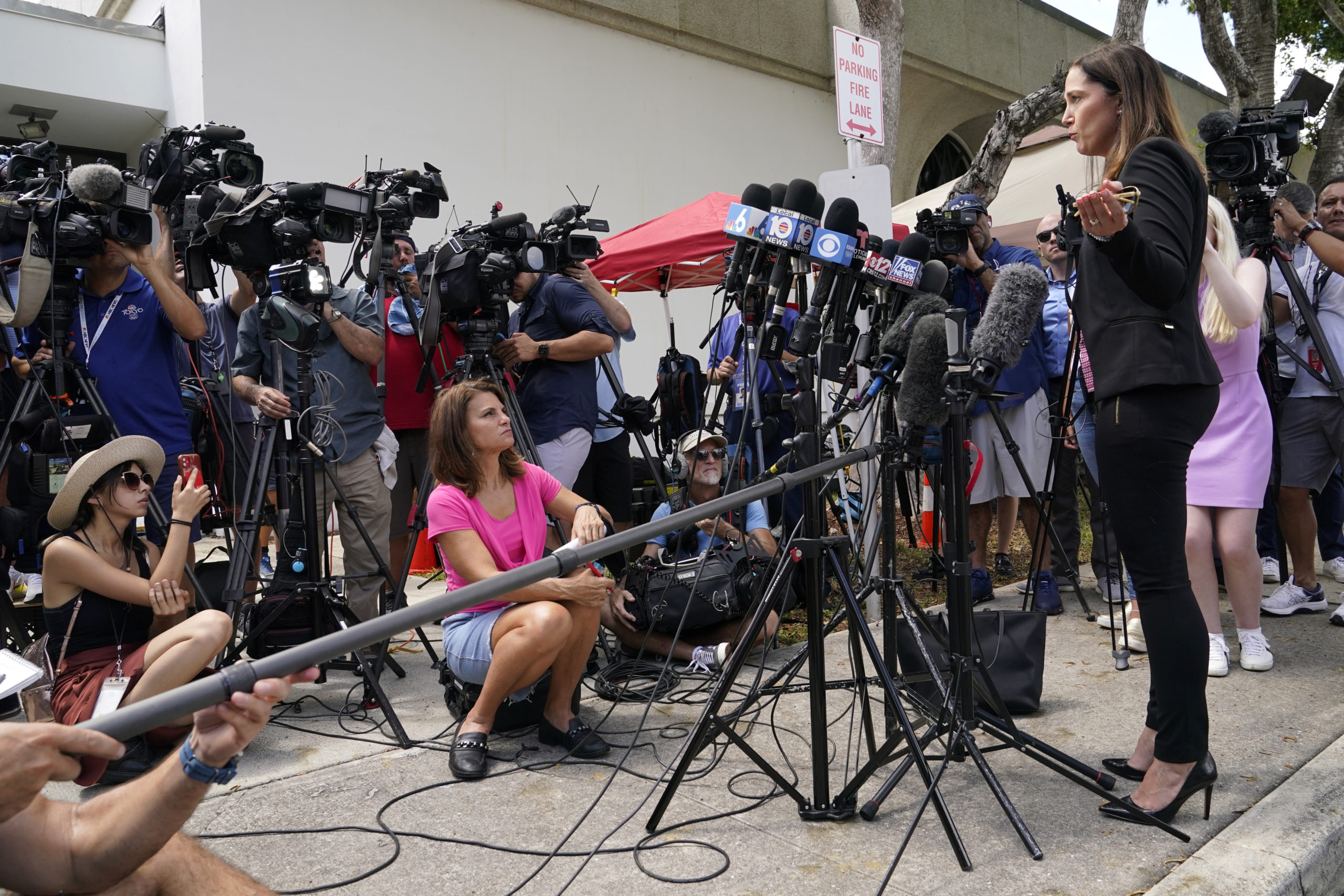
Over the past few years, Americans have become increasingly polarized, having trouble even simply talking to each other and agreeing on basic facts. A 2020 study revealed that the polarization gap — how negatively members of opposing political parties viewed each other — soared by nearly 70 percent.
In this issue, Nieman Reports explores how newsrooms are advancing political coverage that considers voters rather than just vote-seekers, explores divisions without oversimplifying or overstating them, and identifies not only the existence of problems but possible solutions — a practice that in turn makes the reporting more useful and even more accurate.
Carrie Johnson, NF ’20, on covering the FBI search of former President Donald Trump’s home
The key to the justice beat is easy to understand and difficult to execute. Running with the pack on breaking news is essential. But reporters truly distinguish themselves by doing enterprise stories they squeeze in during the rare quiet stretches.
The challenge was especially acute during the unprecedented FBI search of former President Donald Trump’s Florida home — the kind of week where a plot to kill the former U.S. national security adviser gets one minute of coverage.
Reporting on the Justice Department can be a hectic and unpredictable enterprise. Covering the FBI search of Mar-a-Lago meant it was time to dump out the toolbox and deploy every tool. That started with calls to national security experts, criminal defense lawyers, and figures in the Trump orbit. Next came electronic searches of the court docket in south Florida and trips to Justice Department headquarters to prowl the hallways.
NPR’s flagship shows, Morning Edition and All Things Considered, wanted regular updates, from 5 a.m. to 5 p.m. Podcasts — including Up First and the Politics Podcast — asked for more context, in a more conversational tone. Our stories explained the high bar it took for the FBI to convince a judge to approve a search warrant, the laws that prosecutors say might have been broken, and why the public was not likely to see much of the underlying affidavit describing the Justice Department’s sources and methods.
In between breaking news coverage, the network aired a story I reported about an innovative education program for people in jail. Email and phone traffic from others involved in the criminal justice system poured in, so I gathered leads to pursue whenever the flood of news ends.
At its best, radio transports listeners into new experiences, making powerful connections between the people featured in stories and the audience members in their homes, their cars, or their offices.
In my free time, I choose to bring those listeners the voices they’re unlikely to hear elsewhere: the stories of incarcerated people, their families, and their advocates. They’re speaking to their fellow Americans and to policymakers about the ways the system fails them, and why that should matter to all of us.



